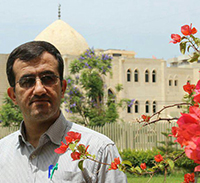Must & Must Not(s) in Expert Evaluation
Hamid Qazvini
Translated by Natalie Haghverdian
2019-02-05

Usually, in any oral history project, interviewing is evaluated before the final text is formulated. At this stage, managers or project experts have seen the interview and evaluated it.
The following are methods of interview expert evaluation:
- In addition to scientific nobility on the subject, the expert must have a good understanding of the oral history interview and its characteristics. Otherwise, why some of the questions and techniques used in the interview will not be known and will result in faulty evaluation. The expert should appreciate that the text is not final, and until the release, it will encounter information and reformation. Unfortunately, there are cases in which the expert, due to lack of knowledge and competence in oral history methodology, conducts a faulty evaluation and exposes the project to complications.
- One of the tasks of the expert is to determine the degree of loyalty of the text to the main subject and to have a logical cognition of the relevance of the sub-topics to the main subject. There are many experts who focus on the main subject, and consider the sub-topics to be irrelevant. For example, if the narrator, in expressing political memoirs, refers to the cultural and social background of his city, the experts consider such discussion to be irrelevant to the subject matter. While any political activity is formed in a cultural and social context and is not strange to the process of struggle.
- Sometimes, during an interviews, questions and answers are repeated, and some experts view it as a weakness, while the interviewer's goal is to achieve a more complete answer by repetitions.
- Each narrative is associated with some analyzes, which in a way demonstrates the narrator's view and attitude to various historical phenomena. The insistence of experts on recording memories without any analysis is not always possible.
- Exaggerations and contradictions in the memoirs are common and do not necessarily reflect untruthfulness of the narration. The expert must acknowledge it and do not consider it a catastrophe. These matters can be corrected through research and dialogue with the narrator and the constructive interaction with them.
- The essence of oral history is in the plurality and diversity of narratives and differences, and sometimes in contradictions. The experts shall not worry and expect the production of a narrative consistent with the previous narratives or in accordance with the written literature.
- In text evaluation, the experts must put their personal tastes and political and party and even organizational affiliations aside and focus on the historical truth and narration accuracy. Unfortunately, in many cases, there are experts who try to impose their personal, political, and sometimes organizational point of views on the interview and hinder the freedom of the interviewer. In the long term, in spite of all costs and efforts, such impositions will affect the credibility of the materials produced and lead the researchers to other sources.
Number of Visits: 4952
http://oral-history.ir/?page=post&id=8359
